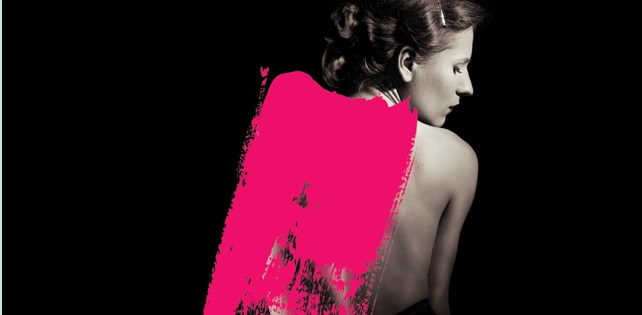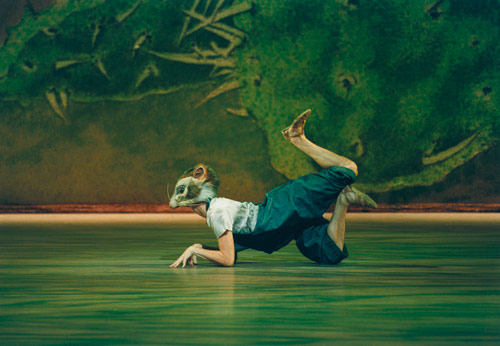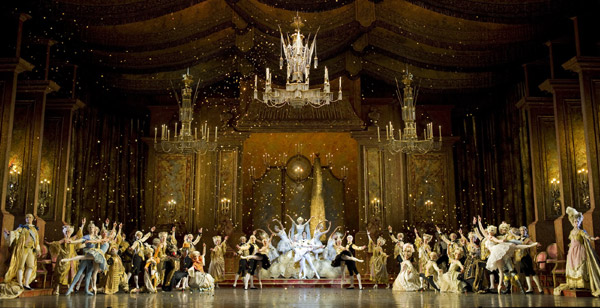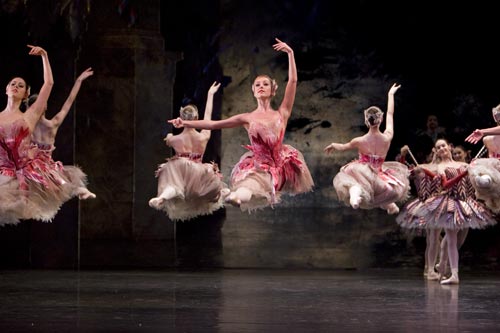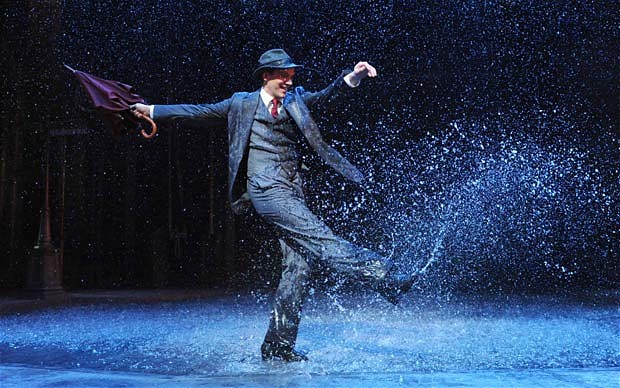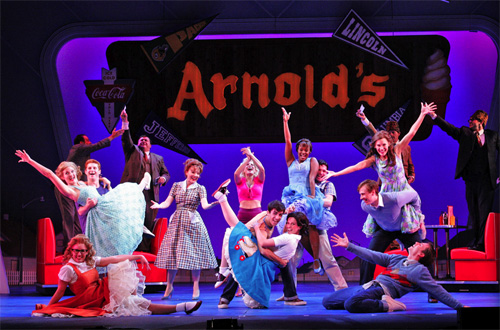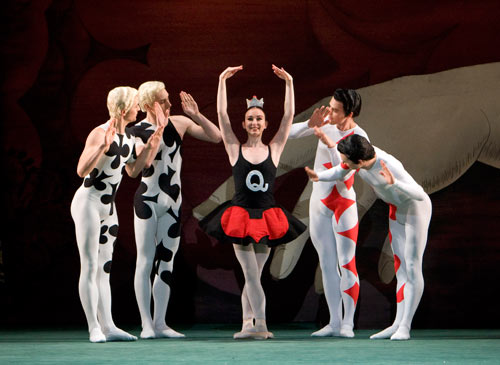As part of the Welsh National Opera’s current season themed around the idea of “Fallen Women”, a series of three shows are being performed this week at the Birmingham Hippodrome. Last night, the season began with Giuseppe Verdi’s famous La Traviata, directed by David McVicar and Sarah Crisp, which will be performed again this Saturday (8th March).
 Like a series of sumptuous Victorian paintings brought startlingly to life, the design of the show was utterly magnificent throughout. From the bustling, brightly coloured party scenes that opened the show’s first and second acts, to the more intimate moments we spend in the company of the frail and saintly Violetta once she is “reformed”, designer Tanya McCallin has realised the period in painstaking detail by mirroring the art and culture of the time. Some of the clearest references are reprinted in the programme, such as James Tissot’s The Convalescent, which provides a near-perfect model for Violetta’s angelic, flowing, white dressing gown in Act Two, which stands in sharp contrast with the black velvet and red taffeta she favours while in Paris. Though not as directly referenced, I was particularly reminded of the classic “fallen women” and rich colours and textures found in Pre-Raphaelite works.
Like a series of sumptuous Victorian paintings brought startlingly to life, the design of the show was utterly magnificent throughout. From the bustling, brightly coloured party scenes that opened the show’s first and second acts, to the more intimate moments we spend in the company of the frail and saintly Violetta once she is “reformed”, designer Tanya McCallin has realised the period in painstaking detail by mirroring the art and culture of the time. Some of the clearest references are reprinted in the programme, such as James Tissot’s The Convalescent, which provides a near-perfect model for Violetta’s angelic, flowing, white dressing gown in Act Two, which stands in sharp contrast with the black velvet and red taffeta she favours while in Paris. Though not as directly referenced, I was particularly reminded of the classic “fallen women” and rich colours and textures found in Pre-Raphaelite works.
One problem did arise as a result of the production’s elaborate set design: a scene change in the middle of Act 2 saw the curtain come down and the music stop for several minutes, leaving the audience a little restless and confused as to whether the second interval had already started. It was worth the wait for what followed, but I wondered whether the changeover might have been better handled with some sort of explanation to the audience in advance, to stop people from getting up and trying to leave. That said, I’m not familiar enough with opera to know whether or not this is usual.
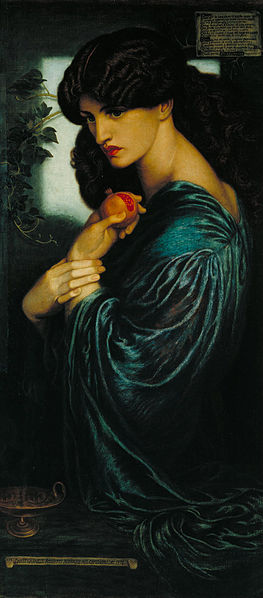 Ji-Min Park carried the audience away completely with his energy, ardour and youthful naiveté as our heroine’s hapless lover Alfredo. Alfredo’s interfering father, Giorgio, is also brilliantly portrayed by Alan Opie, whose powerful presence commands full attention every time he steps onto the stage. His gravitas offsets his son’s foolishness and triviality, yet he is not without his comic moments: he flounders hopelessly when Violetta attempts to “embrace [him] like a daughter”. Gaudily made-up as life and soul of the party Flora, Rebecca Afonwy-Jones’s knowing humour is surpassed only by that of Act Two’s ingenious gypsy troupe, whose saucy performance offers welcome light relief from the overarching tragic melodrama. Credit here must also go to Andrew George and Colm Seery for their excellent choreography: the gypsy’s dances are timed to perfection. Sian Meinir lends an edge of tough, practical realism to Violetta’s maid Annina, revealing their debts and the sale of her mistress’s possessions to Alfredo in a moment of obvious frustration with his dreamy guilelessness when it crosses the line into downright stupidity. Naturally, though, Violetta herself must be the star of this show, and Linda Richardson only gets better as things develop. Perhaps her most beautiful singing is alongside Alan Opie’s when Giorgio arrives in Act Two, but it’s after this that the audience really begins feel her anguish over the “great sacrifice” he asks of her as the show builds up towards its tear-jerking ending.
Ji-Min Park carried the audience away completely with his energy, ardour and youthful naiveté as our heroine’s hapless lover Alfredo. Alfredo’s interfering father, Giorgio, is also brilliantly portrayed by Alan Opie, whose powerful presence commands full attention every time he steps onto the stage. His gravitas offsets his son’s foolishness and triviality, yet he is not without his comic moments: he flounders hopelessly when Violetta attempts to “embrace [him] like a daughter”. Gaudily made-up as life and soul of the party Flora, Rebecca Afonwy-Jones’s knowing humour is surpassed only by that of Act Two’s ingenious gypsy troupe, whose saucy performance offers welcome light relief from the overarching tragic melodrama. Credit here must also go to Andrew George and Colm Seery for their excellent choreography: the gypsy’s dances are timed to perfection. Sian Meinir lends an edge of tough, practical realism to Violetta’s maid Annina, revealing their debts and the sale of her mistress’s possessions to Alfredo in a moment of obvious frustration with his dreamy guilelessness when it crosses the line into downright stupidity. Naturally, though, Violetta herself must be the star of this show, and Linda Richardson only gets better as things develop. Perhaps her most beautiful singing is alongside Alan Opie’s when Giorgio arrives in Act Two, but it’s after this that the audience really begins feel her anguish over the “great sacrifice” he asks of her as the show builds up towards its tear-jerking ending.
It’s testament to their skills that however infuriating modern viewers might find this story, the performers still manage to sweep us all up along with them, stirring emotional responses that we hardly expect and making us really care about the characters almost in spite of ourselves. Still, as the programme’s fascinating articles by an impressive array of novelists, playwrights and feminist essayists suggests, the WNO does not wish for us to ignore our more rational reactions to La Traviata‘s problematic plot. As David Pountney, the WNO’s Chief Executive and Artistic Director, writes in his introduction:
“[Fallen women] is…. a controversial theme, and I hope that bringing these three works together will provoke you to question the assumptions that lie behind them – perhaps even make some of you angry – an entirely healthy reaction to important cultural ideas.”
It cannot be by accident, then, that the voices of this production’s female characters are allowed to speak loudest, even if we are not left entirely convinced by Violetta’s self-sacrifice or, indeed, by her attraction to Alfredo, who is undoubtedly punching above his weight in both wisdom and capacity for compassion. Unlike our Victorian predecessors, force-fed a phobia of “fallen” females, we cannot readily accept Violetta’s miserable death as only due punishment for her “sins” – rather, we are left wondering how the more selfish and silly men we blame for her demise can possibly atone for theirs. If their changeability and inconstancy (interestingly stereotypically “feminine” qualities) so far are anything to judge by, it’s a struggle to believe that the guilt they feel when we leave them will really plague them for long enough to be considered sufficient penance.
What’s important, then, is that though Violetta is effectively silenced – her spirit being the first to fly the stage – the curtain comes down before those that survive her can say or do anything to appropriate or moralise her suffering. When it goes back up again, it’s her and her alone we see at first, not only allowing Richardson to take well-deserved credit for her performance, but also ensuring that Violetta retains her own integrity.
With its Violetta left exhausted, sweating and sickly (rather than prettily pale and waiflike in line with the bizarre, deathly standards of beauty that proliferated in the 19th century) and still battling on to the end, the WNO ensures that the tragic courtesan character transcends her role of simply “feeding and satisfying” male fantasy, instead confronting us with the reality of her existence (Violetta is, after all, based on a real woman, Marie Duplessis): that, in David Pountney’s words “is where the poignancy comes in”.
The Welsh National Opera’s La Traviata is showing again at the Birmingham Hippodrome on 8th March. Full tour dates can be found here. It is followed at the Hippodrome by Giacomo Puccini’s Manon Lescaut this evening and Hans Werner Henze’s Boulevard Solitude tomorrow night. Keep an eye on Tal Fox’s blog, If You Could See This Now, for a review of Boulevard Solitude, and if you are aged 16-23 and using the Hippodrome’s First Night scheme to get tickets for the opera, don’t forget to let us know here.

